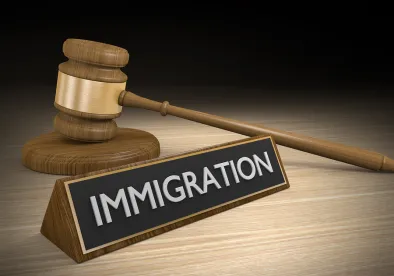The U.S. Department of State (DOS) has issued new guidance establishing a presumption of willful misrepresentation when a foreign national, within 90 days of entry into the United States, engages in conduct that violates the terms of his or her nonimmigrant status. The individual will be presumed to have misrepresented his or her intent to comply with the terms of his or her visa when entering the country. This may lead to a determination of visa fraud, which is cause for a permanent ban from the United States.
Previously, the DOS applied what was called the “30/60-Day Rule,” which specified that inconsistent conduct within 30 days of entry trigged a presumption that the foreign national had misrepresented his or her intention upon entering the country. A foreign national’s conduct in violation of visa status after 30 days, but before 60 days after entry, would not trigger the presumption, but if the facts supported a “reasonable belief” that the foreign national had misrepresented his or her intentions, he or she would be given the opportunity to rebut that conclusion. Finally, a foreign national’s actions after 60 days would not trigger a presumption or “reasonable belief” of misrepresentation at time of entry.
The new rule applies the presumption of misrepresentation to acts inconsistent with a visa holder’s status within 90 days of entry. This can apply to the following actions:
-
engaging in unauthorized employment while in a nonimmigrant status that does not allow it, such as B-1/B-2 visitor status;
-
enrolling in a course of academic study, if study isn’t authorized for that visa status classification (e.g., B-1 temporary business visitor status);
-
marrying a U.S. citizen or lawful permanent resident and taking up residence in the United States, while in a nonimmigrant status that does not allow immigrant intent; or
-
engaging in any other activity for which a change of status to another appropriate nonimmigrant status or adjustment to lawful permanent residence would be required, without making that change or adjustment of status.
In addition, if the offending conduct occurs more than 90 days after entry, the consular officer may apply the “reasonable belief” standard if the facts warrant it. If the facts support a reasonable belief that the foreign national made a misrepresentation upon entry, the DOS officer is now instructed to request an advisory opinion from the DOS Advisory Opinions Division to determine whether the foreign national willfully misrepresented his or her intent on entry.
This new rule may have severe consequences for foreign nationals or employees whose plans change within 90 days of entry, and who would like to stay in the United States after entering on a visitor visa or visa waiver (for example). If, for example, a foreign national enters the country on a visitor visa and then gets married to a U.S. citizen within 90 days of entry, this will trigger the presumption that he or she made a willful misrepresentation upon entry about his or her intent to reside permanently in the country. In addition, even if the foreign national gets married after 90 days, if the consular officer considers that the facts suggest that a misrepresentation may still have been made, instead of providing the foreign national an opportunity to rebut this conclusion, the new guidance requires that a request for an official DOS advisory opinion be made.
This change in DOS policy arises in the context of a Trump administration directive dated March 6, 2017, ordering the DOS to enhance screening procedures. The Foreign Affairs Manual applies to the DOS, and therefore affects visas applications at embassies abroad, but it may also influence decisions made by U.S. Citizenship and Immigration Services (USCIS) in adjudicating green card and change-of-status applications within the United States. Though the USCIS Policy Manual has not yet been updated, the administration’s enhanced vetting policy appears to be extending to USCIS applications. If foreign nationals work or get married within 90 days of entry into the U.S. on visitor visas, for example, or perform other actions inconsistent with their status, these acts may trigger issues affecting applications to change or adjust status inside the United States, as well as visa applications abroad.
Employers should ensure that foreign national employees on nonimmigrant visas in the United States maintain compliance with their visa status at all times. Business travelers in temporary statuses that require nonimmigrant intent, such as B-1/B-2 visitor visas, visa waiver (ESTA), or TN, for example, should be aware that marriage to a U.S. citizen within 90 days of entry in such statuses is now considered evidence of willful misrepresentation of intent upon entering the United States and may trigger a finding of inadmissibility that can result in a ban from the United States.






 />i
/>i
